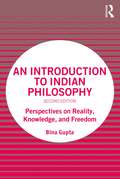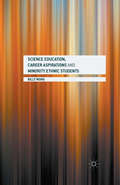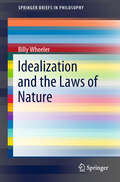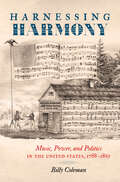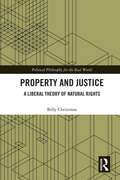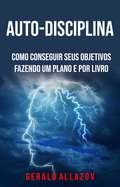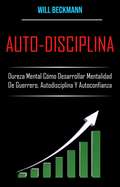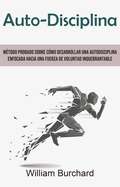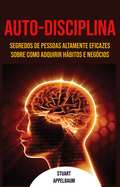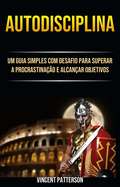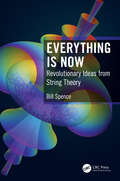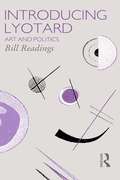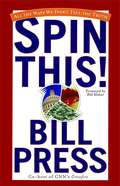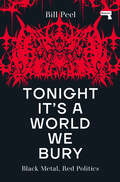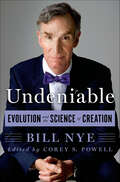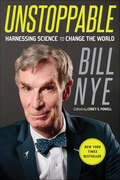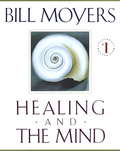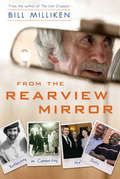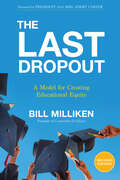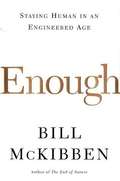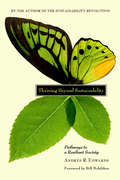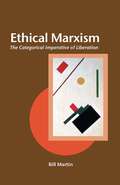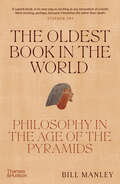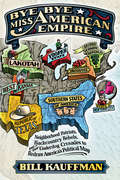- Table View
- List View
An Introduction to Indian Philosophy: Perspectives on Reality, Knowledge, and Freedom
by Bina GuptaAn Introduction to Indian Philosophy offers a profound yet accessible survey of the development of India’s philosophical tradition. Beginning with the formation of Brāhmaṇical, Jaina, Materialist, and Buddhist traditions, Bina Gupta guides the reader through the classical schools of Indian thought, culminating in a look at how these traditions inform Indian philosophy and society in modern times. Offering translations from source texts and clear explanations of philosophical terms, this text provides a rigorous overview of Indian philosophical contributions to epistemology, metaphysics, philosophy of language, and ethics. This is a must-read for anyone seeking a reliable and illuminating introduction to Indian philosophy. Key Updates in the Second Edition Reorganized into seven parts and fifteen chapters, making it easier for instructors to assign chapters for a semester-long course. Continues to introduce systems historically, but focuses on new key questions and issues within each system. Details new arguments, counter-arguments, objections, and their reformulations in the nine schools of Indian philosophy. Offers expanded discussion of how various schools of Indian philosophy are engaged with each other. Highlights key concepts and adds new grey boxes to explain selected key concepts. Includes a new section that problematizes the Western notion of "philosophy." New Suggested Readings sections are placed at the end of each chapter, which include recommended translations, a bibliography of important works, and pertinent recent scholarship for each school. Adds a new part (Part III) that explains the difficulties involved in translating from Sanskrit into English, discusses fundamental concepts and conceptual distinctions often used to present Indian philosophy to Western students, and reviews important features and maxims that most darśanas follow. Provides new examples of applications to illustrate more obscure concepts and principles.
Science Education, Career Aspirations and Minority Ethnic Students
by Billy WongIs science typically for White men? Is science for 'people like us'? What are the barriers and opportunities? This book explores the science career aspirations of minority ethnic students. It investigates the views, experiences and identities of British Black Caribbean, Bangladeshi, Chinese, Indian and Pakistani youths in relation to science.
Idealization and the Laws of Nature (SpringerBriefs in Philosophy)
by Billy WheelerThis new study provides a refreshing look at the issue of exceptions and shows that much of the problem stems from a failure to recognize at least two kinds of exception-ridden law: ceteris paribus laws and ideal laws. Billy Wheeler offers the first book-length discussion of ideal laws. The key difference between these two kinds of laws concerns the nature of the conditions that need to be satisfied and their epistemological role in the law’s formulation and discovery. He presents a Humean-inspired approach that draws heavily on concepts from the information and computing sciences. Specifically, Wheeler argues that laws are best seen as algorithms for compressing empirical data and that ideal laws are needed as 'lossy compressors' for complex data.Major figures in the metaphysics of science receive special attention such as Ronald Giere, Bas van Fraassen, Nancy Cartwright, David Lewis and Marc Lange. This book is essential reading for philosophers of science and will interest metaphysicians, epistemologists and others interested in applying concepts from computing to traditional philosophical problems.
Harnessing Harmony: Music, Power, and Politics in the United States, 1788–1865
by Billy ColemanFollowing the creation of the United States, profound disagreements remained over how to secure the survival of the republic and unite its diverse population. In this pathbreaking account, Billy Coleman uses the history of American music to illuminate the relationship between elite power and the people from the early national period to the Civil War. Based on deep archival research in sources such as music periodicals, songbooks, and manuals for musical instruction, Coleman argues that a particular ideal of musical power provided conservative elites with an attractive road map for producing the harmonious union they desired. He reassesses the logic behind the decision to compose popular patriotic anthems like "The Star-Spangled Banner," reconsiders the purpose of early American campaign songs, and brings to life a host of often forgotten but fascinating musical organizations and individuals. The result is not only a striking interpretation of music in American political life but also a fresh understanding of conflicts that continue to animate American democracy.
Relevance Theory
by Billy ClarkOver the past twenty years, relevance theory has become a key area of study within semantics and pragmatics. In this comprehensive new textbook, Billy Clark introduces the key elements of the theory and how they interconnect. The book is divided into two parts - the first providing an overview of the essential machinery of the theory, and the second exploring how the original theory has been extended, applied and critically discussed. Clark offers a systematic framework for understanding the theory from the basics up, building a complete picture and providing the basis for advanced research across a range of topics. With this book, students will understand the fundamentals of relevance theory, its origins in the work of Grice, the relationship it has to other approaches, and its place within recent developments and debates.
Property and Justice: A Liberal Theory of Natural Rights (Political Philosophy for the Real World)
by Billy ChristmasThis book gives an account of a full spectrum of property rights and their relationship to individual liberty. It shows that a purely deontological approach to justice can deal with the most complex questions regarding the property system. Moreover, the author considers the economic, ecological, and technological complexities of our real-world property systems. The result is a more conceptually sound account of natural rights and the property system they demand. If we think that liberty should be at the centre of justice, what does that mean for the property system? Economists and lawyers widely agree that a property system must be composed of many different types of property: the kind of private ownership one has over one’s person and immediate possessions, as well as the kinds of common ownership we each have in our local streets, as well as many more. However, theories of property and justice have not given anything approaching an adequate account of the relationship between liberty and any other form of property other than private ownership. It is often thought that a basic commitment to liberty cannot really tell us how to arrange the major complexities of the property system, which diverge from simple private ownership. Property and Justice demonstrates how philosophical rigour coupled with interdisciplinary engagement enables us to think clearly about how to deal with real-world problems. It will be of interest to political philosophers, political theorists, and legal theorists working on property rights and justice.
Auto-Disciplina: Como Atingir seus Objetivos
by Bill ThomasVisualizar seu sucesso: Para ser bem sucedido, você precisa acreditar que é não só possível como inevitável. Um bom modo de fazê-lo é se visualizar atingindo um objetivo. Seu mais produndo desejo é estar em forma e saudável? Então, visualize-se subindo as escadas correndo sem estar com dificuldades para respirar ou entrando naquele velho jeans. Seu objetivo é ter um bom carro em vez de ter um carro que quebra o todo tempo? Imagine-se dirigindo pela estrada com o modelo de suas escolha. Visualização é um modo de preparar seu subconsciente para o que está por vir. Em outras palavras, ajuda a passar a mensagem de que é possível para você. Os atletas acreditam nesse método. Uma visualização positiva e afirmações criam os pensamentos positivos e crenças, que o permitem escolher as atividades e ações corretas para chegar aonde deseja estar. Em essência, estabelecer objetivos permite a você ver sua vida em um contexto maior, e descobrir que direção tomar. Ajuda a permanecer focado e organizado, construindo sua autoconfiança e sentimentos de realização pessoal. Você pode alcançar mais em sua vida em vez de perder tempo sendo ineficiente em seus objetivos.
Auto-Disciplina: Dureza Mental Cómo Desarrollar Mentalidad De Guerrero, Autodisciplina Y Autoconfianza
by Bill ThomasFortaleza mental: Cómo desarrollar la mentalidad de un guerrero, la autodisciplina y la confianza en sí mismo Autodisciplina: dureza mental cómo desarrollar la mentalidad guerrera, la autodisciplina y la confianza en sí mismo. Por muy hermosa que sea esta definición, no delinea del todo lo que realmente significa disciplinarnos para completar una tarea o alcanzar una meta. Por lo tanto, necesitamos desglosar esto de otra manera y relacionarlo con el proceso de formación de hábitos. Con eso en mente, la autodisciplina se convierte en un proceso de construcción de hábitos diarios consistentes a través del tiempo que nos ayudan a obtener los resultados deseados. O, en otras palabras, se trata de tomar pequeñas acciones consistentes que le ayuden a formar los hábitos que posteriormente le ayudarán a lograr su objetivo. ¿Está luchando por mantenerse concentrado en sus tareas, dejar las cosas para más tarde y tener poco autocontrol? ¿Sientes como si nunca hubieras hecho nada? ¿Ha afectado esto a su productividad diaria y a su capacidad para alcanzar sus objetivos? ¿Quieres vivir una vida más productiva, más feliz y relajada? Usted puede pensar que es genéticamente un fracasado y un procrastinador sin autocontrol, pero esto no podría estar más lejos de la verdad. La autodisciplina es una habilidad que se puede aprender y es uno de los factores determinantes más importantes en el éxito y la felicidad de su vida. Empiece a desbloquear su verdadero potencial y llegue a la realización de que puede alcanzar sus sueños y el éxito que desea. El éxito y la grandeza no sólo les sucede a aquellos que son "Dotados" o "Talentosos". Sucede por ser disciplinado y trabajar hacia una mayor visión día a día....pulgada a pulgada... y momento a momento. Esforzarse y crear sus propios sueños y logros únicos para convertirse en la persona que siempre supo que podía ser.
Auto-Disciplina: Método Probado Sobre Cómo Desarrollar Una Autodisciplina Enfocada Hacia Una Fuerza De Voluntad Inquebrantable
by Bill ThomasEste libro contiene pasos y estrategias demostrados sobre cómo comenzar a llevar una vida más exitosa mejorando la autodisciplina y la seguridad. En el mundo moderno en el que vivimos, todos queremos ser exitosos. Tenemos puestos de trabajo que no disfrutamos o deseamos avanzar y mejorarnos, o necesitamos bajar de peso, o lograr esto, lo otro o lo de más allá. Imagínate que te despiertas y puedes comenzar el día con el pie derecho todos los días, no solo cuando estás de buen ánimo. Los estudios han avanzado mucho en los últimos veinte años. Este libro te enseñará las mejores prácticas empleadas por pensadores visionarios, entre ellos, Elon Musk. Aprende a establecer micro metas para lograr los objetivos enormes que tienes para ti, casi sin esfuerzo. Descubre cómo se puede sacar provecho de un neurotransmisor para que tengas la disciplina de un espartano preparado para la guerra.
Auto-disciplina: Segredos De Pessoas Altamente Eficazes Sobre Como Adquirir Hábitos E Negócios
by Bill ThomasEste livro contém seis etapas simples e realistas sobre como se disciplinar. Este livro apresenta informações essenciais porque a disciplina é uma necessidade em sua vida. Cada capítulo explica instruções passo a passo sobre como desenvolver diferentes habilidades necessárias para alcançar a autodisciplina. Os seis passos mencionados neste livro são todos atingíveis e diretos. Ao se dedicar a seguir os níveis, há uma chance maior de você se tornar uma pessoa disciplinada que está querendo. As dicas são benéficas para sua melhoria de vida e excelência pessoal. Tudo que você precisa é de um compromisso para realizar todas as estratégias apresentadas no livro. Este livro de autoajuda é uma leitura obrigatória. Se você quer realizar mais, viver uma vida mais feliz e se transformar em uma pessoa melhor, então este livro é para você.
Autodisciplina: Um Guia Simples Com Desafio Para Superar A Procrastinação E Alcançar Objetivos
by Bill ThomasNeste livro você encontrará técnicas e estratégias comprovadas que o impulsionarão aos níveis daqueles que parecem ter tudo. Iste é um guia passo a passo que lhe explicará o básico para desenvolter Audodisciplina que é a base para atingir seus objetivos e viver a vida que você merece. Onde você se posiciona na vida é determinado pelo número de vezes que você cai e levanta, e quanta dor e desconforto você pode suportar ao longo do caminho. O caminho à realização extraordinária e à vida digna de viver não é talento inato, mas foco, força de vontade, e ação disciplinada. A maioria dos livros de autocontrole ensina a básica abordagem emocionante à autodisciplina, mas com este poderoso livro de autodisciplina e força de vontade, você poderá compreender as barreiras ao sucesso, como desculpas, culpa, e recusa. Você terá o poder de ver a realidade como ela realmente é - e começar a dizer a si mesmo a verdade. Dando a si mesmo objetivos e escolhas simples, fáceis de atingir, você poderá reconectar sua mente para o sucesso!
Everything is Now: Revolutionary Ideas from String Theory
by Bill SpenceThis engaging and beautifully written book gives an authoritative but accessible account of some of the most exciting and unexpected recent developments in theoretical physics. – Professor Lionel J Mason, Mathematical Institute, University of Oxford String theory is often paraded as a theory of everything, but there are a large number of untold stories in which string theory gives us insight into other areas of physics. Here, Bill Spence does an excellent job of explaining the deep connections between string theory, particle physics, and the novel way of viewing space and time. – Professor David Tong, Department of Applied Mathematics and Theoretical Physics, University of Cambridge Foremost amongst Nature’s closest-guarded secrets is how to unite Einstein’s theory of gravity with quantum theory – thereby creating a ‘quantum space-time’. This problem has been unsolved now for more than a century, with the standard methods of physics making little headway. It is clear that much more radical ideas are needed, and our front-line researchers are showing that string theory provides these. This book describes these extraordinary developments, which are helping us to think in entirely new ways about how physical reality may be structured at its deepest level. Amongst these ideas are that Everything can happen at the same time – it is all Now; Hidden spaces, large and small, are everywhere amongst us; The basic objects are ‘membranes’ that behave like soap bubbles and can explore the shape of spacetime in new ways; We are holographic projections from higher dimensions; You can take the ‘square root’ of gravity; Ideas from the ancient Greeks are resurfacing in a beautiful new form; And the very latest work shows that ‘staying positive’ is essential. The book is aimed at a general audience, using analogies, diagrams, and simple examples throughout. It is intended as a brief tour, enabling the reader to become aware of the main ideas and recent work. A full list of further resources is supplied. Bill Spence is the founding Director of the Centre for Research in String Theory at Queen Mary University of London. He has worked on string theory for over three decades.
Introducing Lyotard: Art and Politics (Critics of the Twentieth Century)
by Bill ReadingsThe first truly introductory text on Lyotard, this book situates Lyotard's interventions in the postmodern debate in the wider context of his rethinking of the politics of representation. Bill Readings examines Lyotard's relationship to structuralism, Marxism and semiotics, and contrasts his work with the literary deconstruction of Paul de Man; he positions Lyotard's work so as to draw out the implications of poststructurlaism's attention to difference in reading. Lyotard's willingness to question the political and examine the relationship between art and politics is shown to undermine the charge that deconstruction abdicates political and social articulation.
Spin This!
by Bill PressWe're all familiar with the warning, "Don't believe everything you see or hear. " Bill Press, the popular co-host of CNN's Crossfire, will have you wondering whether you should believe anything at all. Spin -- intentional manipulation of the truth -- is everywhere. It's in the White House, in the courtrooms, in headlines and advertising slogans. Even couples on dates -- not to mention book jackets -- are guilty of spin. Now, analyst Bill Press freeze-frames the culture of spin to investigate what exactly spin is, who does it and why, and its impact on American society as a whole. Depending upon who is doing it, spinning can mean anything from portraying a difficult situation in the best possible light to completely disregarding the facts with the intent of averting embarrassment or scandal. Using examples drawn from recent history -- the Clinton presidency, the Florida recount, and the Bush White House -- Press first probes spin's favorite haunt: politics. In addition to surveying the incarnations of spin in the fields of journalism, law, and advertising, Press also chews on the spin of sex and "dating," a word that has become the very embodiment of spin. Perhaps surprisingly, however, Press argues that spin isn't all bad, and that without it the harsh truths of our times might be too tough to swallow. With the same keen sense of humor that helped make CNN's Crossfire television's premier debate show and the limited run of The Spin Room so popular, Press turns the tables on the prime purveyors of spin -- called spin doctors -- noting some of their biggest guffaws and blunders. As Press notes, it has become abundantly clear that the twenty-first century, beginning as it has with a president who was "spun into office," will be a fertile stomping ground for spin.
Tonight It’s a World We Bury: Black Metal, Red Politics
by Bill PeelTonight It&’s a World We Bury explores a range of tendencies central to black metal and uncovers their potential as critiques of capitalism.Tonight It's a World We Bury is a radical re-writing of the history and politics of black metal music.Challenging the commonly-held perception that black metal is a genre of the right — full of wannabe Vikings, Nazis, skinheads and other unsavoury characters — Tonight It's a World We Bury looks at an array of black metal artists to re-affirm the genre as radically anticapitalist, revolutionary and left-wing.Utilizing an eclectic range of black metal bands, including Darkthrone, Burzum, Liturgy and Deathspell Omega, and taking in the works of Marx, Nietzsche, Deleuze and more, Tonight It's a World We Bury is a book on black metal like no other.
Undeniable: Evolution and the Science of Creation
by Bill NyeThe popular scientist explains the marvels and mysteries of evolution in this “fun to read and easy to absorb” New York Times bestseller (The Washington Post).Evolution is one of the most powerful and important ideas ever developed in the history of science. Every question it raises leads to new answers, new discoveries, and new smarter questions. The science of evolution is as expansive as nature itself. It is also the most meaningful creation story that humans have ever found.—Bill NyeSparked by a controversial debate in February 2014, Bill Nye has set off on an energetic campaign to spread awareness of evolution and the powerful way it shapes our lives. In Undeniable: Evolution and the Science of Creation, he explains why race does not really exist; evaluates the true promise and peril of genetically modified food; reveals how new species are born in a dog kennel and in a London subway; takes a stroll through 4.5 billion years of time; and explores the new search for alien life, including aliens right here on Earth.With infectious enthusiasm, Bill Nye shows that evolution is much more than a rebuttal to creationism; it is an essential way to understand how nature works—and to change the world. It might also help you get a date on a Saturday night.“Mr. Nye writes briskly and accessibly [and] makes an eloquent case for evolution.” —The Wall Street Journal“Nye, known for delivering geeky intel with clarity and charm, takes on one of society’s most hotly debated topics (yes, still).” —Time Out New York
Unstoppable: Harnessing Science to Change the World
by Bill Nye“Climate change is coming. What can we do about it? TV’s ‘Science Guy’ has some answers. . . . An important message delivered in a winning manner.” —Kirkus ReviewsJust as World War II called an earlier generation to greatness, so the climate crisis is calling today’s rising youth to action: to create a better future.In Unstoppable, Bill Nye expands the message for which he is best known and beloved. That message is that with a combination of optimism and scientific curiosity, obstacles become opportunities, and the possibilities of our world become limitless. With a scientist’s thirst for knowledge and an engineer’s vision of what can be, Bill Nye sees today’s environmental issues not as insurmountable problems but as chances for our society to rise to the challenge and create a cleaner, healthier, smarter world. We need not accept that transportation consumes half our energy, and that two-thirds of the energy you put into your car is immediately thrown away out the tailpipe. We need not accept that dangerous emissions are the price we must pay for a vibrant economy and a comfortable life. Above all, we need not accept that we will leave our children a planet that is dirty, overheated, and depleted of resources. As Bill shares his vision, he debunks some of the most persistent myths and misunderstandings about global warming. When you are done reading, you’ll be enlightened and empowered. Chances are, you’ll be smiling, too, ready to join Bill and change the world.
Healing and the Mind
by Bill MoyersAt last, the paperback edition of the monumental best-seller (almost half a million copies in print!) that has changed the way Americans think about sickness and health -- the companion volume to the landmark PBS series of the same name. In a remarkably short period of time, Bill Moyers's Healing And The Mind has become a touchstone, shaping the debate over alternative medical treatments and the role of the mind in illness and recovery in a way that few books have in recent memory. With almost half a million copies in print, it is already a classic -- the most widely read and influential book of its kind. In a series of fascinating interviews with world-renowned experts and laypeople alike, Bill Moyers explores the new mind/body medicine. Healing And The Mind shows how it is being practiced in the treatment of stress, chronic disease, and neonatal problems in several American hospitals; examines the chemical basis of emotions, and their potential for making us sick (and making us well); explores the fusion of traditional Chinese medicine with modern Western practices in contemporary China; and takes an up-close, personal look at alternative healing therapies, including a Massachusetts center that combines Eastern meditation and Western group therapy, and a California retreat for cancer patients who help each other even when a cure is impossible. Combining the incisive yet personal interview approach that made A World Of Ideas a feast for the mind and the provocative interplay of text and art that made The Power Of Myth a feast for the imagination, Healing And The Mind is a landmark work.
From the Rearview Mirror: Reflecting On Connecting The Dots
by Bill MillikenFrom the Rearview Mirror is the story of Bill Milliken’s journey from an affluent Pittsburgh suburb to the streets of Harlem and the Lower East Side of New York City in the 1960s, on to communal living in Georgia in the 1970s, to working with multiple presidential administrations in Washington, D.C. He struggled with an undiagnosed learning disability in school, believing he was dumb and had nowhere to go. After connecting with the Young Life outreach program at the age of 17, however, he found his calling doing street work with homeless, addicted, and other at-risk teens in the turbulent ’60s. Bill and his colleagues founded what grew into Communities in Schools, a highly effective organization working to bring services to young people and prevent them from dropping out of school. Along the way, Bill struggled with bringing his personal life into alignment with his ideals, coming to terms with organized religion and his own spiritual path, and creating the family and community he’d always longed for.
The Last Dropout: A Model for Creating Educational Equity
by Bill MillikenA revised and updated edition of an exploration into the foundational principles, impact, and real-life success stories from Communities In Schools.Since 1977, Communities In Schools (CIS) has reached more than one million students and their families annually approximately 3,000 American schools, surrounding them with a community of support and empowering them to stay in school and achieve in life.In The Last Dropout, CIS founder Bill Milliken offers nine key principles that Communities In Schools has tested over four decades. Interwoven are his real-world life stories, a journey that began in the turbulent 1960s as a youth worker and evolved into a handful of groundbreaking "Street Academies" that became the CIS movement with a national network of hundreds of local affiliates. Milliken also shares transformative stories about how CIS leaders have adopted these principles in their own communities, with stunning results.Milliken's guiding philosophy has been "It is relationships, not programs, that change children," and it is a principle that has served as a beacon in the movement for educational equity and success.
Enough: Staying Human in an Engineered Age
by Bill MckibbenWe are on the verge of crossing the line from born to made, from created to built. Sometime in the next few years, a scientist will reprogram a human egg or sperm cell, spawning a genetic change that could be passed down into eternity. We are sleepwalking toward the future, argues Bill McKibben, and it's time to open our eyes. In "The End of Nature", nearly fifteen years ago, McKibben demonstrated that humanity had begun to irrevocably alter--and endanger--our environment on a global scale. Now he turns his eye to an array of technologies that could change our relationship not with the rest of nature but with ourselves. He explores the frontiers of genetic engineering, robotics, and nanotechnology--all of which we are approaching with astonishing speed--and shows that each threatens to take us past a point of no return. We now stand at a critical threshold, poised between the human past and a post-human future. Ultimately, McKibben offers a celebration of what it means to be human, and a warning that we risk the loss of all meaning if we step across the threshold. His wise and eloquent book argues that we cannot forever grow in reach and power--that we must at last learn how to say, 'Enough.'
Thriving Beyond Sustainability
by Andres R. Edwards Bill MckibbenEvery fifteen seconds on our Earth, a child dies from waterborne disease. Three times an hour, another species becomes extinct. Each day we consume eighty-five million barrels of oil and pump twenty-three million tons of carbon dioxide into an already warming atmosphere. But against this bleak backdrop, beacons of hope shine from thousands of large and small initiatives taking place everywhere from isolated villages to major urban centers.Thriving Beyond Sustainability draws a collective map of individuals, organizations, and communities from around the world that are committed to building an alternative future--one that strives to restore ecological health; reinvent outmoded institutions; and rejuvenate our environmental, social, and economic systems. The projects and initiatives profiled are meeting the challenges of the day with optimism, hope, and results, leading the way in: Relocalization Green commerce Ecological design Environmental conservation Social transformation Overflowing with inspiration, the stories and ideas in these pages will cause the most chronic pessimist to see the glass as half full--to move beyond a perception of surviving with scarcity to one of flourishing with abundance. The comprehensive resource section provides the tools for everyone to become a catalyst for change.Andres R. Edwards is the author of The Sustainability Revolution, which has sold over twenty thousand copies. He is an educator, media designer, LEED-accredited green building and sustainability consultant, and the founder of EduTracks, a firm specializing in developing education programs and providing consulting services on sustainable practices.
Ethical Marxism
by Bill MartinThis book aims to reinvigorate the Marxist project and the role it might play in illuminating the way beyond capitalism. Though political economy and scientific investigation are needed for pure Marxism, Martin's argument is that the extent to which these elements are needed cannot be determined within the conversations of political economy and other investigations into causal mechanisms. What has not been done, and what this book does, is to argue for the possibility of a rethought Marxism that takes ethics as its core, displacing political economy and "scientific" investigation.
The Oldest Book in the World: Philosophy in the Age of the Pyramids
by Bill ManleyA new translation of a philosophical and practical advice classic of the ancient world, The Teaching of Ptahhatp, written in Egypt four thousand years ago and still relevant for modern readers today. Noted author and Egyptologist Bill Manley renders into approachable modern English for the first time the oldest surviving statement of philosophy from the ancient world: the thirty-seven teachings and twelve conclusions of The Teaching of Ptahhatp, vizier, or chief minister, to the Old Kingdom pharaoh Izezi (2390–2350 BCE). Manley’s expert commentary elucidates Ptahhatp’s profound yet practical philosophy, which covers such topics as ambition, fame, confrontation, sex, and wisdom, and offers a unique window onto ancient Egyptian life and society. The Teaching of Ptahhatp ought to begin the list of the world’s classics of philosophy, yet it has been largely forgotten since its rediscovery in the nineteenth century. Manley’s new translation corrects this oversight, making accessible for the first time the Old Kingdom vizier Ptahhatp’s concise, helpful insights into the human condition. New translations of two further texts—The Dialogue Between a Man and His Soul, in which a man asks himself, “What is the point of living?,” and Why Things Happen, the oldest surviving account of creation from anywhere in the world—demonstrate how Ptahhatp’s philosophy was founded in ancient Egyptian beliefs about truth and reality. Manley introduces the vizier and the world within which he operated, as well as the significance of the “oldest book of the world,” preserved in a scroll now known as the Papyrus Prisse in the Bibliotheque Nationale de France. Together these works by Ptahhatp provide a new perspective on the Pyramid Age and overturn traditional stereotypes about the origins of Western philosophy.
Bye Bye, Miss American Empire
by Bill KauffmanIt's been almost a century and a half since a critical mass of Americans believed that secession was an American birthright. But breakaway movements large and small are rising up across the nation. From Vermont to Alaska, activists driven by all manner of motives want to form new states-and even new nations. So, just what's happening out there? The American Empire is dying, says Bill Kauffman in this incisive, eye-opening investigation into modern-day secession-the next radical idea poised to enter mainstream discourse. And those rising up to topple that empire are a surprising mix of conservatives, liberals, regionalists, and independents who-from movement to movement-may share few political beliefs but who have one thing in common: a sense that our nation has grown too large, and too powerfully centralized, to stay true to its founding principles. Bye Bye, Miss American Empiretraces the historical roots of the secessionist spirit, and introduces us to the often radical, sometimes quixotic, and highly charged movements that want to decentralize and re-localize power. During the George W. Bush administration, frustrated liberals talked secession back to within hailing distance of the margins of national debate, a place it had not occupied since 1861. Now, secessionist voices on the left and right and everywhere in between are amplifying. Writes Kauffman, "The noise is the sweet hum of revolution, of subjects learning how to be citizens, of people shaking off . . . their Wall Street and Pentagon overlords and taking charge of their lives once more. " Engaging, illuminating, even sometimes troubling,Bye Bye, Miss American Empireis a must-read for those taking the pulse of the nation.
